Mini review: Freeheld
Year: 2015
Certificate: 15
Director: Peter Sollett
Screenwriter: Ron Nyswaner
Cast: Julianne Moore, Ellen Page, Michael Shannon, Steve Carell
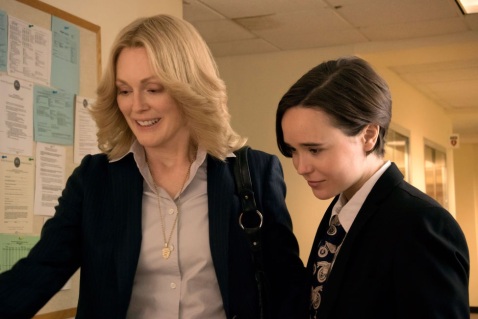
Julianne Moore stars as Laurel Hester, whose struggle to transfer her police pension to her partner Stacie Andree (Ellen Page) in the wake of Laurel’s terminal cancer diagnosis had a lasting impact on gay rights in the States. Despite excellent central performances from Page and Moore, the by-the-numbers screenplay and straightforward direction leave Freeheld feeling ultimately televisual. Frustratingly, the civil rights element and domestic drama element seem to jostle for position, each ultimately undermining the other as Laurel and Stacie’s relationship is not allowed sufficient screen time before the cancer diagnosis and subsequent legal struggle (with the supporting characters it brings in) become the central focus of the narrative.
Verdict: 3/5
Image: Fandango.com
BFI Flare review: The Girl King
Year: 2015
Certificate: 15
Director: Mika Kaurismäki
Screenwriter: Michel Mark Bouchard
Cast: Malin Buska, Sarah Gadon, Michael Nyqvist, Patrick Bauchau
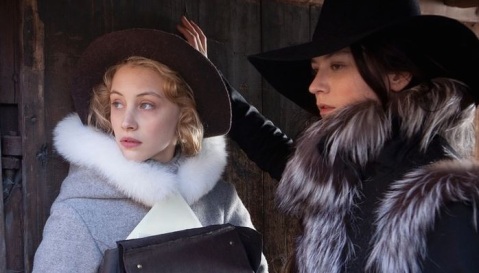 Amid the Catholic-Protestant conflict raging throughout 17th century Europe, Kristina (Malin Buska), only child of the late King Gustav II of Sweden, is raised under the watchful eyes of Sweden’s Lutheran court and it’s chancellor, Axel Oxenstierna (Michael Nyqvist). However, when Kristina comes of age and begins to rule as queen, her* radical proclamations and unconventional conduct in private cause tensions within the court.
Amid the Catholic-Protestant conflict raging throughout 17th century Europe, Kristina (Malin Buska), only child of the late King Gustav II of Sweden, is raised under the watchful eyes of Sweden’s Lutheran court and it’s chancellor, Axel Oxenstierna (Michael Nyqvist). However, when Kristina comes of age and begins to rule as queen, her* radical proclamations and unconventional conduct in private cause tensions within the court.
A Sweden-Canada co-production, The Girl King is a valiant if ultimately flawed attempt to illustrate the life of an extremely unusual monarch. Buska, already a well-known theatrical actress in Sweden, is a perfect choice for the intelligent and rakish Kristina, and is a commanding screen presence. However, one can’t help wonder if she is being held back slightly by the requirements of performing in a second language (other than the occasional exchange in French, the film is spoken in English), as her delivery of the lines doesn’t quite equal the exquisite subtlety of her facial expressions. Michael Nyqvist (known for the Swedish Girl With the Dragon Tattoo trilogy) does admirable work here as Sweden’s Chancellor, showing a surprising deftness in the more comic moments. The exchanges between Axel and Kristina, particularly when he is trying to delicately approach the subject of her tomboyish nature, are some of the best scenes in the film. Other highlights are Sarah Gadon as Kristina’s love interest, Countess Ebba Sparre, and Patrick Bauchau as the French philosopher René Descartes, with whom Kristina strikes up a correspondence which scandalises the pious members of her court (while Sweden and France had a mutual enemy in Germany, France’s allegiance to the Pope made their truce an uneasy one).
Despite the quality of the acting and some clever cinematography courtesy of Guy Dufaux, The Girl King ultimately feels a little ramshackle. Bouchard’s screenplay makes much of Kristina’s love for Ebba, and while it’s refreshing to see such an unapologetically queer historical figure pursuing their desires, the arc of Kristina and Ebba’s romance feels clichéd and despite an elegant turn from Gadon as a character Ebba is paper-thin. Indeed, even Kristina’s crisis of faith- surely hugely important for her as a character- feels glossed over here, and this lack of achievement of the script in really getting under her skin leaves the whole piece feeling too light. This, coupled with the slightly uneven tone where moments of high camp sit uncomfortably next to overwrought emotional scenes, serves to eject the audience from the narrative. A few moments of sloppy editing further underscore these problems.
All in all The Girl King feels like a film which is punching below its weight somewhat. However, there is still much to like here, particularly given the dearth of LGBT historical figures represented on screen. The narrative holds together well enough to showcase the film’s stronger components, and if this is Malin Buska’s Hollywood calling card she will certainly be one to watch in the future.
Verdict: 3/5
BFI Flare is the British Film Institute’s annual LGBT film festival in London. More information about the festival can be found here.
*A note on pronouns: in terms of the historical record, there seems to be a fair amount of debate between academics over both Kristina’s gender and sexuality, with varied theories suggesting Kristina may have been any one of what we now know as gay, bisexual, transgender or intersex. As there is little historical consensus on this, and as the film portrays her fairly unwaveringly as a cis lesbian, I have used female pronouns in my review. If this is a problem let me know and I can edit to gender neutral. Many thanks to my historian friend Katie for doing some academic investigation into Kristina’s history.
Image credit: facebook.com/TheGirlKingFilm
Review: Grandma
Year: 2015
Certificate: 15
Director: Paul Weitz
Screenwriter: Paul Weitz
Cast: Lily Tomlin, Julia Garner, Judy Greer, Marcia Gay Harden, Laverne Cox, Sam Elliott
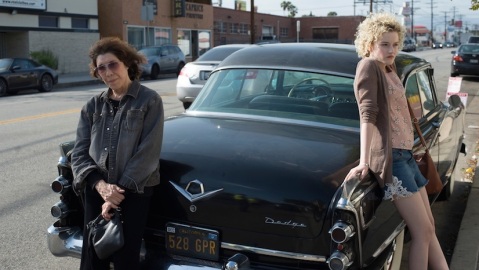
A welcome return to the big screen for Lily Tomlin, Grandma is a beautifully balanced comedic drama in which Tomlin’s retired (and broke) poet Elle sets out on a quest to call in enough favours to raise the money necessary to procure an abortion for her teenage granddaughter, Sage (Judy Greer). Their progress is hampered by the havoc (past and present) wreaked by Elle’s flashbulb temper, and the skeletons in Elle’s closet which begin to rattle as, becoming increasingly desperate, she turns to more and more tenuous connections for help.
Despite the simple premise, Weitz’s film is a work of surprising delicacy, bringing together its seemingly disparate strands of pathos, frank wit and almost knockabout comedy in a way that never feels mishandled. Garner’s sage is a perfect comic foil for the mercurial Elle, providing the audience with a perspective through which to view Elle’s antics with affection as well as incredulity. Garner’s performance is note-perfect, with the spot-on comic timing of her facial expressions providing a counterpoint to Elle’s bursts of temper. In fact, Grandma is consistently funny throughout, with moments of absurdity both underscoring the verisimilitude of the drama (one of the best sight gags I’ve ever seen involving a toy truck occurs in the midst of a bitter reunion between Elle and an ex-lover) and providing a light counterpoint to the film’s more serious elements.
As displayed in his earlier work (most notably 2002’s About a Boy and 2013’s Admission), Weitz has a keen eye for interpersonal relationships, and one of Grandma’s triumphs is its exploration of the complicated web of familial and social connections surrounding Elle. While barely discussed directly, it becomes clear that the death of Elle’s partner of 38 years, Violet, weighs heavily on her, and this loss has fractured the already strained relationship between Elle and her daughter Judy (Marcia Gay Harden). It also causes her to pull back from a fledgling love affair with a younger woman, Olivia (Judy Greer), and the break-up which forms the first scene of the film has lasting consequences.
It is an absolute pleasure (and a rare one) to watch a film which affords such dignity and grants such complexity to an older, female protagonist. Elle is allowed to be by turns relatable and alien, warm and abrasive, and the subtle character development that occurs as she is forced to confront the trail of destruction that her acerbic temperament has wrought is utterly compelling. In fact, despite its wide supporting cast (including accomplished turns from Laverne Cox and Sam Elliott) and lean running time, all of the characters in Grandma feel like real people whose lives continue outside of the frame. Tobias Datum’s unobtrusive and naturalistic camerawork adds to this, placing the audience as almost fly-on-the-wall observers of the unfolding social drama.
Verdict: 5/5
Image credit: sonyclassics.com
Review: Carol
Year: 2015
Certificate: 15
Director: Todd Haynes
Screenwriter: Phyllis Nagy
Cast: Cate Blanchett, Rooney Mara, Sarah Paulson, Kyle Chandler, Jake Lacy
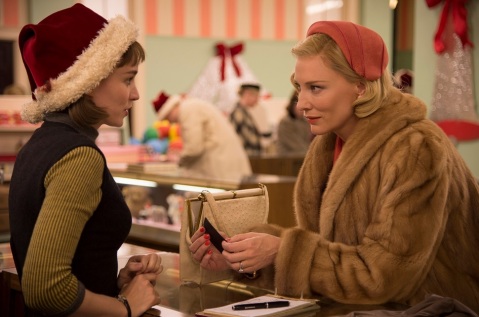
In 1950s New York a chance meeting between wealthy socialite Carol Aird and young department store clerk Therese Belivet quickly leads to a tentative romance. However, they must weather both the homophobic moral code of the era and the threats of Carol’s jealous ex-husband Harge if their relationship is ever to blossom.
Although at the surface langorous and dreamlike, Todd Haynes film still manages to offer a sharp commentary on the nature of attraction, love and jealousy and the rules by which lovers are bound. Carol and Therese’s courtship is one of bland conversation contrasted with questing, significant glances, neither woman being able to say (at first) exactly what they mean as it is not only socially forbidden but, one senses, emotionally too raw. Carol’s apparently offhand request for Therese to come and visit her betrays her longing and her loneliness as they sip soup in a dingy but opulent restaurant, while then tension hums between them.
Blanchett and Mara’s irresistible performances are at the centre of the film, and both actors are skilled enough to interpret the subtleties of Phyllis Nagy’s screenplay. By nature some of Carol and Therese’s conversation is opaque, but the leads, and Todd Hayne’s elegant direction, mean the audience understands exactly as much as they are intended to. Blanchett is fantastic as Carol, a woman torn between providing a social performance in order to hold on to her lifestyle and- more crucially- custody of her daughter and giving in to a new and powerful romance. In their initial meetings, the wonder and curiosity with which she gazes at Therese is tinted with something not unlike fear, even as she confidently invites Therese to her home. Mara brings the same intelligence and intensity as she did in Fincher’s Girl With the Dragon Tattoo, here similarly crafting a rich and believable identity from a character of few words. The dichotomy between Therese’s dawning awareness that for the first time in her life she has found something she wants and cannot live without, and her realisation in turn that this thing is riddled with complexity, is evident in every furrow of her brow and every straying of her eyes away from Carol’s to the floor or the window. Their early courtship is a cautious exchange of tentative admissions and stolen glances, and this sense of furtiveness, of not quite being able to believe what has just landed in front of them (as Carol says ‘such a strange girl… flung from space’) is borne out by Haynes’ and cinematographer Edward Lachman’s extensive and beguiling use of mirrors and windows. Like a kind of inverse medusa legend, their approach must be oblique for fear that the intensity of this thing that the language and culture of the time scarcely gives them words to describe will overcome both of them.
The supporting cast do much to flesh out and support the plot, providing alternate lenses through which the audience can view Carol and Therese. Sarah Paulson is fabulous as always as Carol’s longtime friend and ex-lover Abby, and Kyle Chandler brings humanity to Carol’s husband Harge who, while he understands that their marriage does not work, cannot quite let Carol go. It is to both Nagy and Haynes’ credit that Harge, while clearly the antagonist of the piece, is allowed to be three-dimensional and even engender a degree of sympathy even as his actions are clearly condemnable.
The considerable skill of the actors is bolstered by the other elements of the production, with Carter Burwell’s stirring score describing the action perfectly. The precise and delicate costume and set design both serves to anchor the film firmly in its 1950s setting but also somehow to enhance the sense of constriction felt by the characters in the roles that they have been forced by society to play. The slightly grainy filters, warm light and intense colour palette give the setting a vibrancy at the same time as bringing a slightly dreamlike quality to it, blending perfectly with the heady nature of Carol and Therese’s affair. High drama, but never slipping into melodrama, Carol is a soaring and beautifully made romance that will hopefully be regarded as a classic for years to come.
Verdict: 5/5
Image credit: carolfilm.co.uk
Mini review: Barash
Year: 2015
Certificate: N/A
Director: Michal Vinik
Screenwriter: Michal Vinik
Cast: Sivan Noam Shimon, Jade Sakori, Dvir Benedek, Irit Pashtan, Bar Ben Vakil, Reut Akkerman
Stuck between her well-meaning but overbearing parents and her wayward, army-enlisted older sister, the eponymous Naama Barash (Sivan Noam Shimon) is struggling to piece together her own identity amid the chaos of her family life. A burgeoning romance with the rebellious Dana (Jade Sakori) offers respite from her family, but young love brings with it its own complications.
Taking a deliberate stride away from the overly dramatic tropes of canonical lesbian romances, Barash is a surprisingly sweet coming-of-age tale set in a small town in Israel. The two young leads, both newcomers, provide energetic and authentic performances, and the ups and downs of their whirlwind romance are joyous and heartbreaking to follow by turns. Cinematographer Shai Peleg’s intimate and loose camerawork perfectly evokes the experience of heady adolescence. In more reflective moments, when the camera lingers on Shimon’s face, Naama’s internal state is brilliantly communicated. Outside of the core romance, the subplot of the search for Naama’s missing sister Liora (Ben Bar Vakil), while played equally for its wry familial comedy as its encroaching sense of disaster, fleshes out the narrative nicely. It both allows for an exploration of Naama’s loving but chaotic family, and of some of the social issues at play in modern Israli society.
Although the character arc is fairly standard coming-of-age fare, the refusal to set Jade and Naama’s relationship up as some kind of pretentiously posited all-encompassing love and the subtle exploration of the wider society in which the story operates lend a weight Vinik’s directorial debut. Currently doing the rounds at film festivals, here’s hoping it’ll get a wider distribution before too long.
Verdict: 4/5
Image credit: lamafilms.com
Review: Dear White People
Released: 10th July (UK cinemas)
Certificate: 15
Director: Justin Simien
Screenwriter: Justin Simien
Cast: Tyler James Williams, Tessa Thompson, Brandon P Bell, Teyonah Parris, Kyle Gallner, Marque Richardson
The grand tradition of American films focusing on the college experience has always been rather cagey around the subject of race. Justin Simien’s feature debut not only brings characters of colour to the forefront of a college narrative, but deftly and wryly illustrates the frequently absurd trials and tribulations of being ‘a black face in a white place.’ Set in the fictional Winchester College, the story follows a group of black students during a turbulent autumn term following the unexpected election of media student- and outspoken activist- Sam White (Tessa Thompson) to student head of Armstrong Parker house.
Sam’s election unseats Troy Fairbanks (Brandon P Bell), the popular and high-achieving son of Dean Fairbanks (Dennis Haysbert), who is attempting to reconcile his ambitions as a comedic writer with his father’s plan for him to go to law school. This causes a rift between the politically active residents of Armstrong Parker and those, such as Troy and aspiring YouTube celebrity Coco (Teyonah Parris), who believe that Sam and her satirical radio show ‘Dear White People’ are doing more harm than good. The vibrant tangle of subplots features a decades old rivalry between the Dean and President Hutchinson (Peter Syversten), a prowling reality TV show producer looking to make a fast buck from the trouble he suspects is brewing on campus, and shy kid Lionel’s (Tyler James Williams) quest for belonging.
Simien’s ability to juggle multiple themes and fully flesh out secondary characters is one of Dear White People’s greatest strengths. Even as it chews on its principal theme- that America’s collegiate system is far from ‘post racial’- the political issues are complemented by ones which are completely universal: pushy parents, ill-fated romance, identity crises and bullying. Through presenting a set of characters who each have at least some facet with which anyone could identify, the way that race complicates the search for identity that most people must contend with in their late teens and early twenties is made abundantly clear. Another important element is the diversity of opinion among the black students themselves. Sam’s abrasive and hard-line approach alienates Coco and frustrates Dean Fairbanks, even as it gradually helps Lionel endure (and eventually rebel against) the bullying of his obnoxious and homophobic white housemates.
The directorial choices, too, are rich and interesting. The use of title cards to frame each ‘chapter’ perfectly complements the occasional tableaux vignettes which lampoon (for example) the token inclusion of a person of colour in every Ivy League prospectus photograph. The editing conspires to have characters delivering lines of dialogue while facing the camera. Primarily, this renders the screen mirror-like (and indeed, in several scenes the screen becomes the mirror the characters are facing into as they get ready), further inviting the audience to identify with the characters in question. However, it is perhaps both an invitation and a challenge- as the cast debate racial politics, the same questions and challenges to mainstream thinking are thrown out to the viewer.
If all this sounds a little exhausting, fear not- the satire, while pointed, is also very funny, and the sharp dialogue and high-energy performances keep the plot ticking along. If the pace slips a little in the second act while foundations are being laid, this is more than made up for by the cogent and punchy denouement, which hammers home the film’s central theses and neatly resolves the dramatic tension built up in the first two thirds. Although some may find its forthright approach strays a little too close to the polemic, for my money this is a film long overdue. Frank, funny and unflinching in its satire, Dear White People is both important and immensely enjoyable.
Verdict: 4/5
Image credit: dearwhitepeoplemovie.com
Review: The Falling
Released: 24th April
Certificate: 15
Director: Carol Morley
Screenwriter: Carol Morley
Cast: Maisie Williams, Florence Pugh, Maxine Peake, Greta Saatchi, Monica Dolan, Joe Cole
Set in a 1960s girls’ school, Carol Morley’s second feature film uses an outbreak of a mysterious fainting sickness to delve into issues of friendship, desire and self-examination. Teenage protagonist Lydia (Maisie Williams), is infatuated with her best friend Abbie (Florence Pugh), and terrified that their relationship will change in the wake of Abbie’s burgeoning sexuality and flirtation with Lydia’s older brother, Kenneth (Joe Cole). When Abbie is the first to fall victim to the epidemic of fainting, and Lydia finds herself succumbing, their group of friends must struggle to make sense of their symptoms in the face of impassive staff and a sceptical medical profession.
Strange and sensual, The Falling can be read in many different ways, and Morley skilfully maintains an ambiguity throughout. Florence Pugh’s otherworldly vocals in the film’s opening seconds feel almost like an incantation- a call to enter the dreamlike sphere of The Falling’s influence. This is continued as the ethereal piece played by the Alternative School Orchestra (Lydia and her core group of friends) is subsumed into Tracey Thorn’s score as the mysterious illness begins to manifest. The symptoms of the sickness itself- nausea, shaking, and almost balletic dyskinesias which give way to fainting- are excellently choreographed by Morley. If misdirected, the sight of mass swooning could easily look comical which, considering it happens time and time again in the film, would have rendered the whole thing a farce. Fortunately, the attacks are as disturbing as they are poetic, appearing equal parts agony and sweet surrender, particularly in one extraordinary sequence in which the whole school suffers a mass faint in assembly. This isn’t the only neat narrative trick, and despite the otherworldly nature of the story, Morley perfectly captures many of the fundamental constants of adolescence (and indeed life), from the frank intimacy of teenage friendships to the queasy humour that often pops up when facing horrific circumstances. The use of almost subliminally quick flashed images, both as part of larger montages and singularly in individual scenes, is powerfully evocative of how emotions and memories may flash unbidden to the surface.
How these memories are dealt with varies between cast members, whether it’s with teacher Miss Mantel (Greta Saatchi) and Miss Charron’s (Morfydd Clark) mutual support for one another, Miss Mantel’s restrained camaraderie with chainsmoking headmistress Miss Alvaro (Monica Dolan), Lydia and Abbie’s easy physicality or, more disturbingly, Abbie’s mother’s (Maxine Peake) complete withdrawal, and Abbie’s reflexive scorn. These myriad reactions highlight both the supportive and destructive nature of human relationships which, as the film progresses and tensions begin to mount, grow increasingly and oxymoronically intertwined. The cast rise admirably to the demands of the film’s complex characters, with Maisie Williams excelling in the lead role as the spiky Lydia, perfectly capturing her charisma and her vulnerability. Her performance is well complimented by Florence Pugh, and their raw dynamic anchors the first act. Maxine Peake brings depth to Lydia’s closed off and agoraphobic mother, Eileen.
Morley’s script is economical, making sure the dreamy intensity and at times ponderous ambiguity of the central occurrences don’t outstay their welcome. Although the pace perhaps slips at times in the final act as tension builds, the cathartic denouement more than lives up to the promise of the first two thirds. In The Falling, Morley and co. present a rich, compelling and provocative tale which stays with the viewer long after the credits have rolled.
Verdict: 5/5
Image credit: thefallingfilm.tumblr.com
Review: Appropriate Behaviour
Released: 6th March
Certificate: 15
Director: Desiree Akhavan
Screenwriter: Desiree Akhavan
Cast: Desiree Akhavan, Rebecca Henderson, Halley Feiffer, Scott Adsit
At a time where the cinematic and televisual landscape seems teeming with stories focusing on young bohemian New Yorkers, it can be difficult to stand out from the crowd. However, writer, director and star Desiree Akhavan’s hilarious, wry and surprisingly sweet tale of a bisexual brooklynite (Shirin, played by Akhavan) attempting to recover from an explosive break-up with her first girlfriend, Maxine (Rebecca Henderson), is a true gem.
Told in jumbled flashback interleaved with current events in chronological order, Appropriate Behaviour uses a series of vignettes to build up an impressively comprehensive picture of Maxine and Shirin’s courtship and break up, and Shirin’s attempts to reset her life in the aftermath. The use of cues in the present to trigger flashbacks, while a much used device in cinema, is done with enough subtlety that the segues seem natural, and lends the film a cohesion in that it allows the audience to truly get inside Shirin’s head and become part of the action.
A piece like this can fly or fail on the success of its comedic beats, and thankfully Appropriate Behaviour triumphs in this respect. Eschewing mumblecore improvisation for a more deliberately engineered approach pays off in spades, as the carefully constructed turns of phrase have both a verisimilitude and a razor-sharp focus. In one scene, Shirin’s boss Ken (Scott Adsit), upon discovering her Iranian heritage, says ‘I was just reading this article in Vice about the underground hip-hop scene in Tehran… are you part of that?’ to which Shirin replies, ‘no… when I go [to Iran] I mostly watch Disney videos with my grandmother while she untangles jewellery.’ This deadpan delivery is a particular talent of Akhavan’s, and watching the emotions play about her face as Shirin reacts to the situations around her is an absolute joy. Special mention must also go to Halley Feiffer as Shirin’s best friend Crystal, who shines in the film’s more comically absurd moments, particularly one very funny sequence in which they encounter an unexpectedly intense lingerie shop assistant (Kelly McAndrew). Unsurprisingly considering the subject matter, the comedy is occasionally near the knuckle, but despite a few cheap shots the humour stays on the wry side of arch and never feels deliberately mean-spirited.
Although the comedy is great, there’s also a vein of pathos running throughout which adds depth to the piece. Shirin struggles to reconcile her queer identity with her interpretation of the Persian culture to which she belongs, and fears coming out to her parents. The strain this places upon her relationship with Maxine, and indeed with her family itself, adds a substantial undertone which grounds the more whimsical aspects of the film, bringing it a greater emotional impact than it might otherwise have had. The close camerawork underscores the dramatic moments, again placing the viewer within the scene to allow them to experience the way in which the characters react to one another. The subtle performances from the cast mean we can see every murmured sweet nothing or loaded barb land upon its recipient, bringing an almost theatrical sense of presence (both in the physical and temporal sense) to the proceedings.
Bittersweet, knowingly strange and frequently hilarious, Appropriate Behaviour is an accomplished first feature, balancing wry and bawdy humour with a nuanced portrayal of bisexuality, love and heartbreak.
Verdict: 5/5
Image credit: appropriatebehaviourmovie.com
Review: Predestination
Released: 20th February (cinema, Blu-Ray and on demand)
Certificate: 15
Directors: Michael and Peter Spierig
Screenwriters: Michael and Peter Spierig
Cast: Ethan Hawke, Sarah Snook, Noah Taylor
We’ve all heard the one about the guy walking into the bar. However, when that bar is tended by a time-travelling secret agent working incognito to foil a notorious bomber, and the guy walking in has an incredible and tragic story to tell, things can begin to take off in some very unexpected directions. The agent in question, played by Ethan Hawke, is undercover in 1970s New York when into his bar walks John (Sarah Snook), a writer with a chequered past and a thirst for revenge. The two strike up a conversation, but find that their fates are more intertwined than they might have first expected.
Opting to pick a tricky time-twisting premise (based on Robert A Heinlein’s story ‘All You Zombies’) and run with it, Predestination is high-concept science fiction at its hyperbolic best. The cast absolutely sell the somewhat absurd story, which is the main reason that the film works as well as it does. Hawke’s mysterious time traveller is clearly conflicted, disobeying his own rules regarding time jump frequency, and while he seems honest enough Hawke puts something behind his eyes which never quite allows the audience to trust his motives. But Predestination is really brought to life by Sarah Snook’s portrayal of the hangdog John, before and after his transition to male. The bitter and purposeless John of 1978 is a sharp contrast to his younger self, who is capable, cocky and ambitious, and whose life is ruined by a romantic indiscretion.
Transgender and intersex characters (both identities are relevant to John) are still a rarity in cinema, and so each occurrence bears an unfair burden of representation. In this respect, Predestination is a partial success. The depiction of the physical aspect of John’s transition, while frank, does not feel prurient or exploitative, and his gender identity is not the most interesting thing about his character. However, there is an amount of biological determinism at play which, while completely at home in a story which is all about determinism, perhaps should have been examined and deconstructed further.
The light touch with which the film treats its heftier themes saves it from getting bogged down in its own mythology, however at times this focus on pace over philosophising can render things a little shallow. This is reflected in the direction and cinematography, which provides some arresting images but is ultimately more functional than truly artistic. Similarly, although the tricky time travel narrative is well synthesized, the visual execution is sometimes a little clumsy, flagging up the twists so that their arrival has perhaps less impact than might have been possible otherwise.
Choosing to eschew philosophical navel-gazing in favour of a compact and fast-paced plot, Predestination occasionally feels a little slight. However, the unique premise and fantastic performances by the principal cast bring a real charm to this entertaining piece which rewards repeat viewing.
Verdict: 4/5
Image credit: facebook.com/PredestinationMovie
Review: The Duke of Burgundy
Released: 20th february
Certificate: 18
Director: Peter Strickland
Screenwriter: Peter Strickland
Cast: Sidse Babett Knudsen, Chiara D’Anna, Fatma Mohamed
Peter Strickland’s third feature is a surprisingly moving tale of a couple attempting to reconcile vastly competing sexual needs. Evelyn and Cynthia reside in an unnamed European village surrounded by forest where the one acceptable pursuit (other than BDSM) appears to be entomology. In first scene of The Duke… we observe an elaborate maid-mistress roleplay where Evelyn meekly carries out a bevy of domestic tasks at the behest of the chilly Cynthia. But things are not as they seem, and it quickly becomes apparent that although Evelyn takes the submissive role in the scenario, it is Cynthia who is perhaps making more compromises than she’d like in order to keep Evelyn happy.
Let’s get one thing out of the way first. Despite the hefty 18 certificate (gained for its ‘fetish theme’), there is little here which feels overly explicit or voyeuristic, and the intimate scenes have more in common with the Wachowskis’ Bound than with the brashness of Blue is the Warmest Colour. Although, like those films, it fails to break the problematic paradigm of being a male imagining of a relationship between women (although admittedly Bound was co-written and directed by a woman), it deftly avoids falling victim the worst pitfalls of that model. Strickland’s portrayal of Evelyn and Cynthia places the focus firmly on the emotional intricacies underpinning their relationship, and is far more interested in exploration than titillation.
As Evelyn and Cynthia’s courtship plays out over a tantalisingly uncertain (and possibly recursive) timeline, the warp and wend of their affection for each other is interleaved with dreamlike interludes in the surrounding forest and the halls of the nearby entomology institute (if you’re wondering how dreamlike, slow tracking shots of a lecture audience reveal, with no explanation, that some of the attendees appear to be mannequins). The insect imagery utilised throughout The Duke… is fascinating, if obtuse. A moth butting the windowpane manifests Cynthia’s increasing feelings of confinement, but the time-lapse shots of writhing larvae and crawling beetles are more mysterious, although perhaps enhance the theme of finding beauty in what may outwardly seem bizarre. The deliberate staginess of the direction and cinematography is a little off-putting, though this is presumably a constraint imposed by the vintage 1970s erotic melodramas to which The Duke… is an irreverent homage. However, it does lend the proceedings an oddly stilted feel at times, not helped by the languid pace and fractal repetition of motifs. Furthermore, although Sidse Babett Knudsen is fantastic as reluctant domme Cynthia, providing a wonderfully subtle tragicomic performance where every twitch of the eyebrow speaks volumes, Chiara D’Anna doesn’t quite manage to inject as much depth into the wide-eyed Evelyn. However, in a film as stylised as The Duke… this could well be due to directorial decisions as much as ones on the part of the actor.
Those that can either enjoy or excuse the trappings of the stylisation (and the merry discussion of human toilets) will find The Duke of Burgundy a work of emotional depth, tenderness and wry humour, while others may dismiss it as absurd. I fell firmly into the former camp, completely won over by this strange and ethereal piece of contemporary arthouse cinema.
Verdict: 4/5
Image credit: protagonistpictures.com
Recent Posts
Archives
- September 2017
- February 2017
- January 2017
- November 2016
- October 2016
- September 2016
- June 2016
- April 2016
- March 2016
- February 2016
- January 2016
- December 2015
- November 2015
- October 2015
- September 2015
- August 2015
- July 2015
- June 2015
- May 2015
- April 2015
- March 2015
- February 2015
- January 2015
- December 2014
- November 2014
- October 2014
- September 2014
- August 2014
- July 2014
- June 2014
- May 2014
- April 2014
- March 2014
- February 2014
- January 2014
- December 2013
- November 2013
- October 2013
Categories
- 1961
- 1982
- 1985
- 2010
- 2011
- 2012
- 2013
- 2014
- 2015
- 2016
- 2017
- 2D
- 3D
- Cinema
- Classic Reviews
- Collections
- DVD
- films
- Genre: action
- Genre: animation
- Genre: biopic
- Genre: comedy
- Genre: drama
- Genre: fantasy
- Genre: horror
- Genre: LGBTQ
- Genre: musical
- Genre: period drama
- Genre: sci-fi
- Genre: superheroes
- Genre: thriller
- Genre: western
- Netflix
- Preview Article
- Rating: 1/5
- Rating: 2/5
- Rating: 3/5
- Rating: 4/5
- Rating: 5/5
- Reviewed by: AES
- Reviewed by: SO
- Reviews
- Top 5 List
- Uncategorized
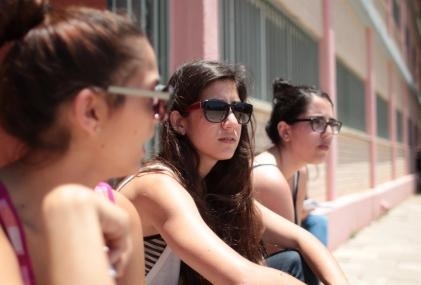

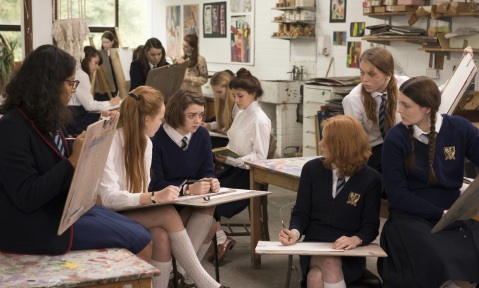
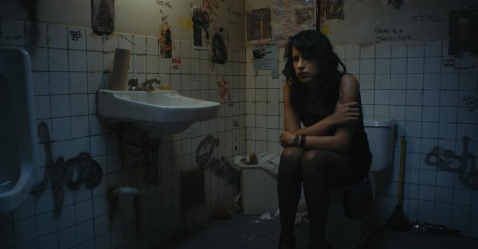
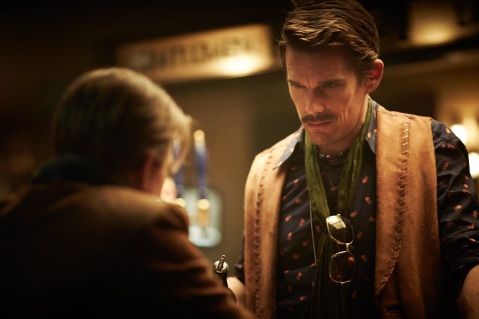
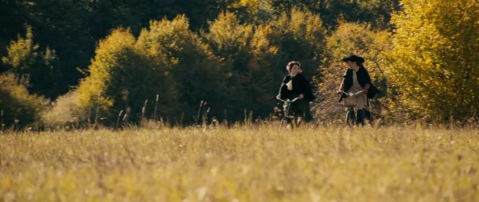
Recent Comments